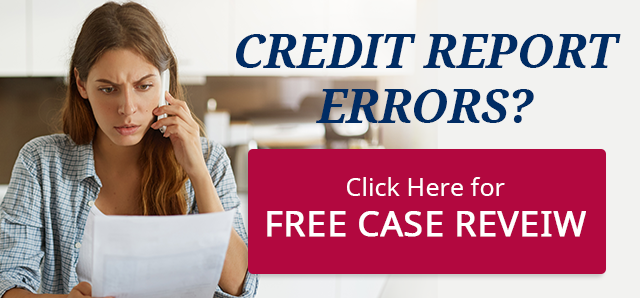
Many consumers have experienced firsthand how common credit report errors are—and how harmful they can be to your credit and daily life. According to a study released in 2013 by the FTC, 5% of consumers have credit report errors. These errors can prevent you from getting a loan, finding housing, or securing a job.
Why Regular Credit Report Monitoring Is Essential
As a consumer, it’s crucial to check your credit report annually to ensure all reported information is accurate. Regular monitoring also helps you catch early signs of identity theft, potentially saving you from significant financial harm.
Ordering your credit report annually is easy and Free at AnnualCreditReport.com Here you can get a free copy of your credit report once a year from the three national credit bureaus: TransUnion, Equifax, and Experian.
Credit report errors come in various forms, and any of them can significantly impact your credit score and financial opportunities. Here are some of the most common types of errors:
- Outdated Information – Each credit reporting agency updates its databases at different times, which can lead to obsolete information remaining on your report. This old data may no longer be relevant or legally allowed to be included in your report.
- Clerical Errors – Simple clerical mistakes are all too common and can affect your credit score. Ensure all loans and credit types are correctly listed and labeled.
- Mistaken or Merged Accounts – A mixed credit file is usually due to similar names or addresses. Mixed files often appear in your credit report, including family members’ information. Mixed files can lead to errors that negatively impact your credit score.
- Identity Theft – Victims of identity theft often find accounts on their credit reports that they never opened. You must check your credit report regularly to ensure all accounts listed belong to you.
- Incorrect Criminal Background Checks – Background check errors are particularly damaging. They often occur when information is merged or mixed up due to similar names or addresses or when outdated information remains on your background check.
- Credit Report Says You Are Deceased – This error occurs when a creditor mistakenly reports an account associated with a deceased individual or if your Social Security Number is reported as deceased. Such an error can prevent you from opening a bank account, renewing your driver’s license, obtaining health insurance, finding an apartment, or participating in many aspects of daily life.
- OFAC Alert – This alert signals to a lender or potential employer that your name matches one on the U.S. Department of the Treasury’s Specially Designated Nationals (SDN) list, which includes suspected terrorists, drug traffickers, and money launderers. If your name is mistakenly added to the SDN list, call us immediately at 1-877-735-8600. We’ve successfully helped others who have faced this critical error.
Under the Fair Credit Reporting Act (FCRA), you have the right to dispute incorrect information on your credit report. Here’s how to start the process:
- Contact the Credit Bureau: Get in touch with the company that issued the credit report. Many offer online dispute forms. If not, or if you prefer, you can write a dispute letter.
- Provide Documentation: Include copies (not originals) of documents supporting your claim.
- Keep Records: If disputing by mail, make copies of your dispute letter for your records. Mail your dispute via certified mail to have proof of receipt.
- Track Your Dispute: Record all correspondence with the credit reporting agency. The agency has 30 days to resolve your dispute and correct errors.

Don’t let credit report errors hold you back. At Francis Mailman Soumilas, P.C., we’ve helped thousands of consumers fight against unresolved credit report errors and disputes with credit reporting agencies. We know the laws and your rights, and we’ll fight for you.
Get Your Free Case Review Today – Don’t Let Errors Damage Your Financial Future!
Fill out our form for a free case review, or call us now at 1-877-735-8600 to see if you have a case. You’ll get expert legal advice with no obligation and no out-of-pocket costs.



